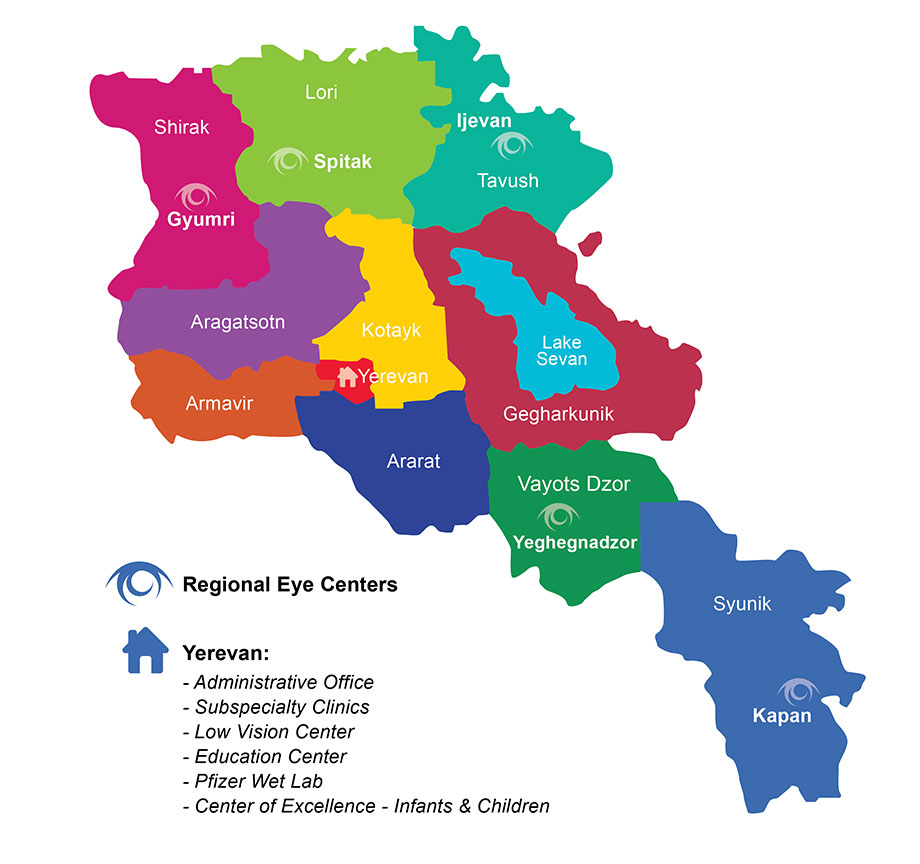Valentina’s Story
“After the surgery she opened her eyes and was in awe… I was crying tears of joy.”
Over 10 years ago, babies born prematurely in Armenia simply didn’t survive. As new and advanced ways to take care of premature infants allowed these babies to survive, many of them developed a progressive eye disease called Retinopathy of Prematurity, or ROP, which can lead to blindness if left untreated.
When a baby is born premature, oftentimes they have to be placed in an incubator. With the high levels of oxygen in this devise, sometimes the blood vessels in these infants can grow a little abnormally. This promotes a disease that can lead to blood vessels on the retina that can cause the retina to bleed and contract, which in turn causes a retinal detachment and leads to blindness.
Valentina is one such baby in Armenia who was born premature. At birth, her lungs were not fully developed and in order for her to breathe, she had to be kept in an incubator. Like many premature infants, baby Valentina was diagnosed with Retinopathy of Prematurity.
Valentina’s parents noticed a problem with their newborn’s vision right away.
“When we offered her a bottle of milk or an object, she couldn’t find it,” Valentina’s father, Amir, said.
“When she was asleep, she was in the dark,” Valentina’s mother, Lusine said. “And when she would wake up, she was still in the dark. I think it was that fear of darkness that would make her cry.”
The fact that a family has to address the possibility of their premature baby also becoming blind can be incredibly devastating. “The mothers and fathers are already distraught that their baby was born early,” AECP Volunteer Physician Dr. Thomas Lee says. “Then to layer on top of that a child who is blind can be more than the family can bear.”
The Armenian EyeCare Project’s Retinopathy of Prematurity Program began in 2010, when we noticed an overwhelming number of blind babies and children in Armenia. AECP Founder Dr. Roger Ohanesian met with the Director of The Vision Center at Children’s Hospital Los Angeles (CHLA) Dr. Thomas Lee and asked if he would come to Armenia.
“I remember thinking ‘I can’t say no to this person. This is too important,’” Dr. Lee says. “And within six months, I was in Yerevan and it was probably the most important thing I’ve ever done with my medical degree… It’s really been a privilege to be part of this program and train doctors on how to save children from going blind.”
The same physicians in Armenia who have been trained by Dr. Lee and other experts in their field were the ones who performed the ROP surgery on baby Valentina. The surgery — performed at the AECP’s Center of Excellence for the Prevention of Childhood Blindness in Yerevan — was a success. Valentina’s sight was saved.
“After the surgery she opened her eyes and was in awe,” Valentina’s mother said. “She was grabbing and touching everything. I was crying tears of joy.”
“She no longer searched for the milk bottle,” Valentina’s father added. “Most importantly, she is no longer living in darkness. She is now an able-bodied person ready to conquer every challenge in her life and I truly believe that she will.”
Valentina’s mother says she notices a difference in Valentina’s temperament too. “She is very active and happy now,” Valentina’s mother says. “Her vision puts a smile on her face and lights up her eyes.”
Valentina’s parents are extraordinarily grateful that their daughter’s sight has been saved. They are especially grateful to the supporters of the Armenian EyeCare Project for making it all possible.
“Because of them, my child can see,” Valentina’s mother says with a wide smile.






